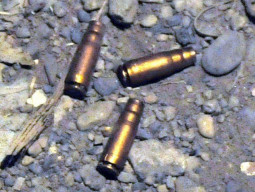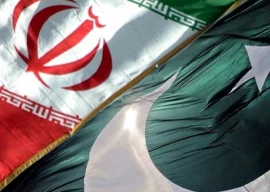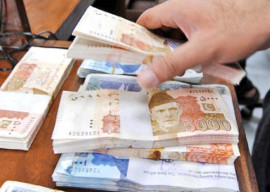
The violence-hit Balochistan, marked by sectarian divides, remains enveloped in conflict. Meanwhile the state of education in the province continues to flounder.
Recently, Professor Ghulam Hussain, popularly known as Saba Dashtiari, of Balochistan University became the twenty third teacher to be murdered in the wake of Nawab Akbar Bugti’s murder in 2007. Dashtiari was shot thrice in Sariab on Wednesday. He died on the spot. The professor had been associated with Balochistan University for 31 years.
To highlight the grievances and dearth of education facilities in Balochistan, Center for Research and Security Studies and ActionAid Pakistan held a policy dialogue in the capital. Both organisations demanded the government to prioritise education in the budget and effectively implement the Balochistan package.
“About 200 teachers have gotten themselves transferred out of the province and applications for another 200 are pending with the provincial government; hundreds of others are scared and ready to be transferred,” said a journalist and human rights activist Mazhar Leghari while talking to The Express Tribune at the roundtable on “Education System in Balochistan-Youth’s Perspective” in Islamabad.
A large number of Balochi students, people from academia, development sector, media and people from civil society attended the conference. The participants declared that the literacy rate of almost the entire province is “remarkably” low. They also criticised the government for lacking the will to improve the situation.
“Pakistan’s literacy rate of 53% is a lot higher than 37% of Balochistan’s. Musakhel district in Balochistan has a literacy rate of only 4%,” said Leghari. He held poverty responsible for lack of education in the province.
Professor Adeel Jamaluddin of International Islamic University Islamabad informed the gathering that Balochistan’s Human Development Index of 0.556 was the lowest of all provinces. He said that with a total area of 134,051 square miles and population density of 58.2 persons per square mile, the geographic enormity of Balochistan has further complicated the provision of education.
He added that all the major universities of Balochistan were in Quetta and was it not feasible for students of far flung areas to travel so far. The professor appreciated the recent announcement by HEC for the establishment of two universities in Loralai and Khuzdar.
He suggested distance-learning and vocational training as alternatives to the policy-makers for Balochistan. He also said that 19 of the lowest-literacy districts of Pakistan, with the exception of one or two in the Federally Administered Tribal Areas, were in Balochistan.
Sardar Wazir Jogezai, former deputy speaker National Assembly and former federal minister for education, presided over the meeting and emphasised theF need to prioritizing education, making it purpose-oriented and compulsory.
Jogezia was of the view that Pakistan has no long-term education planning. He said it was ironic that the Pakistani education system had to make do with available limited resources than the other way round. “Availability of good teachers, free and readily available books are more important than schools buildings,” said Jogezai.
Leghari informed the participants that out of the 20 districts of Pakistan, where more than 50 percent school-going children were not attending school, 10 were in Balochistan. He also pointed out that the promises made under the Aghaz-e-Huqooq-e-Balochistan Package had not been fulfilled.
Published in The Express Tribune, June 4th, 2011.

1723278472-0/BeFunky-collage-(4)1723278472-0-165x106.webp)


1719564405-0/BeFunky-collage-(19)1719564405-0-165x106.webp)












COMMENTS
Comments are moderated and generally will be posted if they are on-topic and not abusive.
For more information, please see our Comments FAQ